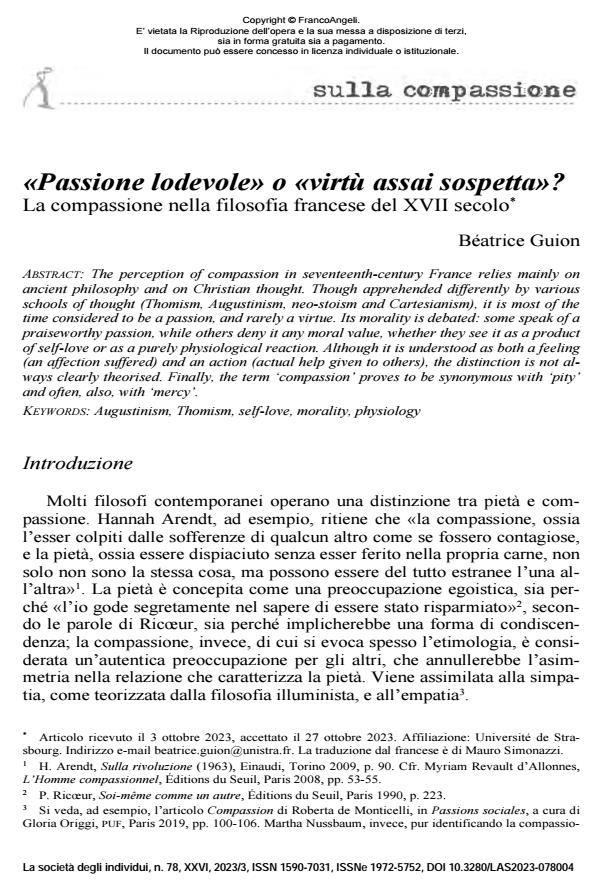«Passione lodevole» o «virtù assai sospetta»? La compassione nella filosofia francese del XVII secolo
Journal title SOCIETÀ DEGLI INDIVIDUI (LA)
Author/s Béatrice Guion
Publishing Year 2024 Issue 2023/78
Language Italian Pages 18 P. 40-57 File size 232 KB
DOI 10.3280/LAS2023-078004
DOI is like a bar code for intellectual property: to have more infomation
click here
Below, you can see the article first page
If you want to buy this article in PDF format, you can do it, following the instructions to buy download credits

FrancoAngeli is member of Publishers International Linking Association, Inc (PILA), a not-for-profit association which run the CrossRef service enabling links to and from online scholarly content.
The perception of compassion in seventeenth-century France relies mainly on ancient philosophy and on Christian thought. Though apprehended differently by various schools of thought (Thomism, Augustinism, neo-stoism and Cartesianism), it is most of the time considered to be a passion, and rarely a virtue. Its morality is debated: some speak of a praiseworthy passion, while others deny it any moral value, whether they see it as a product of self-love or as a purely physiological reaction. Although it is understood as both a feeling (an affection suffered) and an action (actual help given to others), the distinction is not al¬ways clearly theorised. Finally, the term ‘compassion’ proves to be synonymous with ‘pity’ and often, also, with ‘mercy’.
Keywords: Augustinism, Thomism, self-love, morality, physiology
Béatrice Guion, «Passione lodevole» o «virtù assai sospetta»? La compassione nella filosofia francese del XVII secolo in "SOCIETÀ DEGLI INDIVIDUI (LA)" 78/2023, pp 40-57, DOI: 10.3280/LAS2023-078004